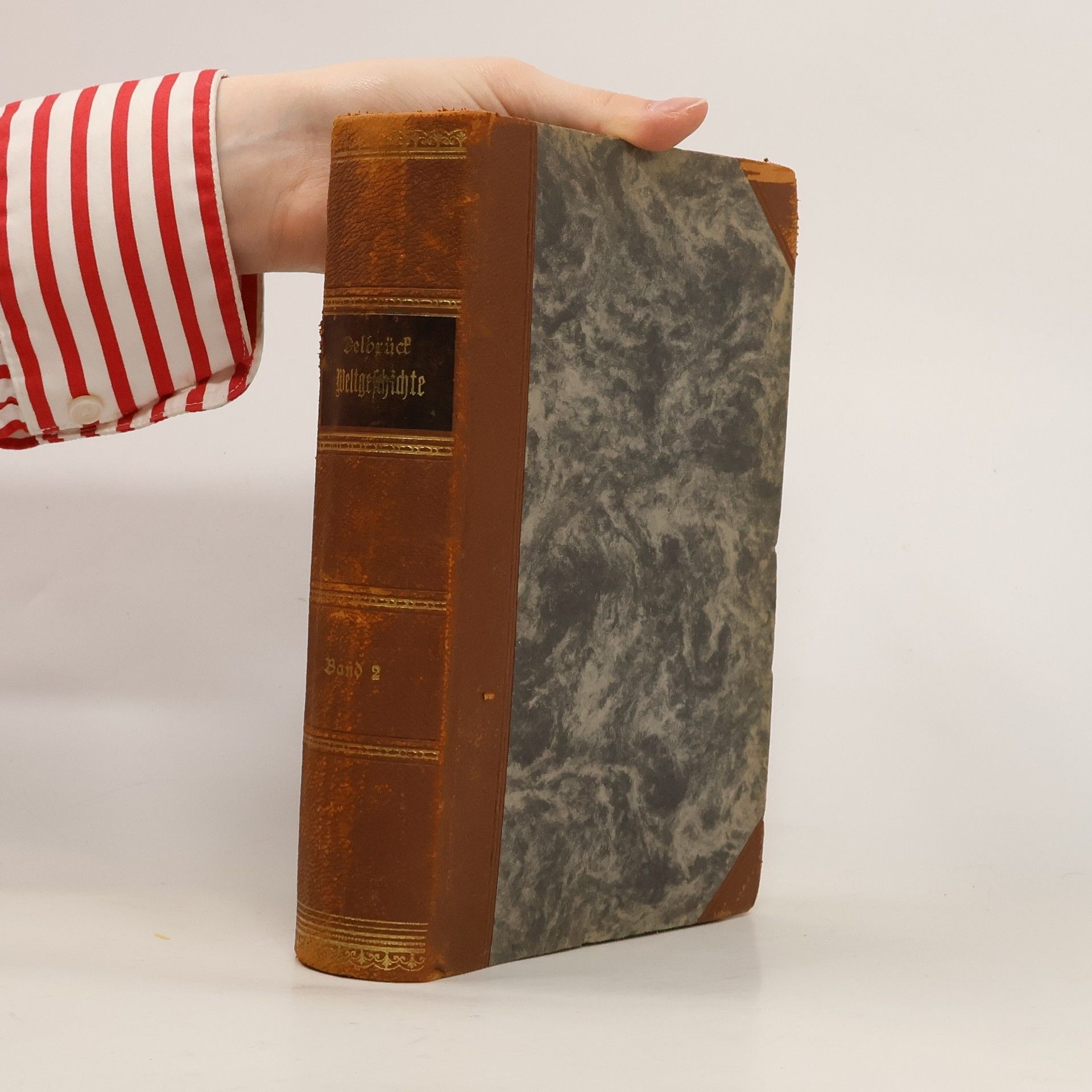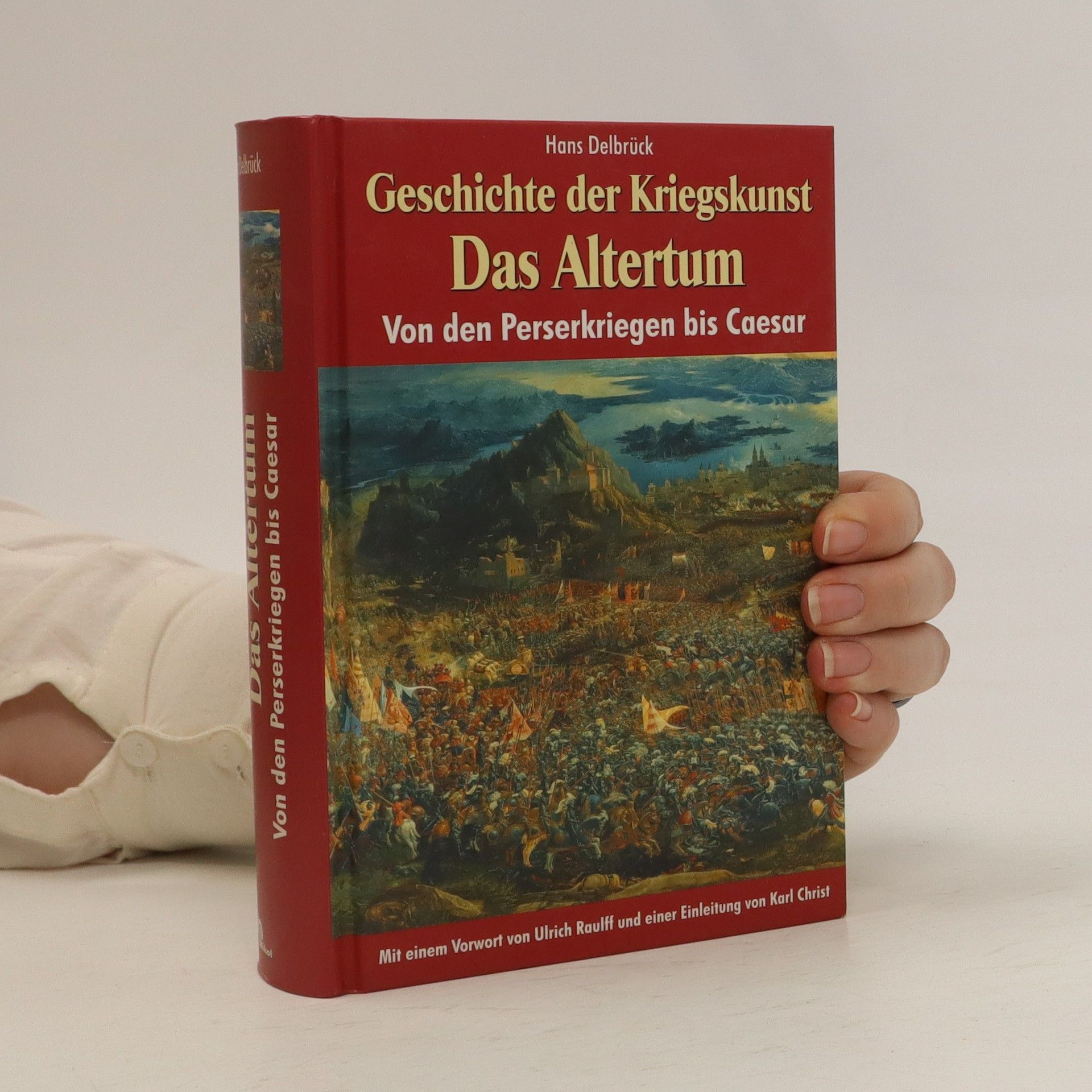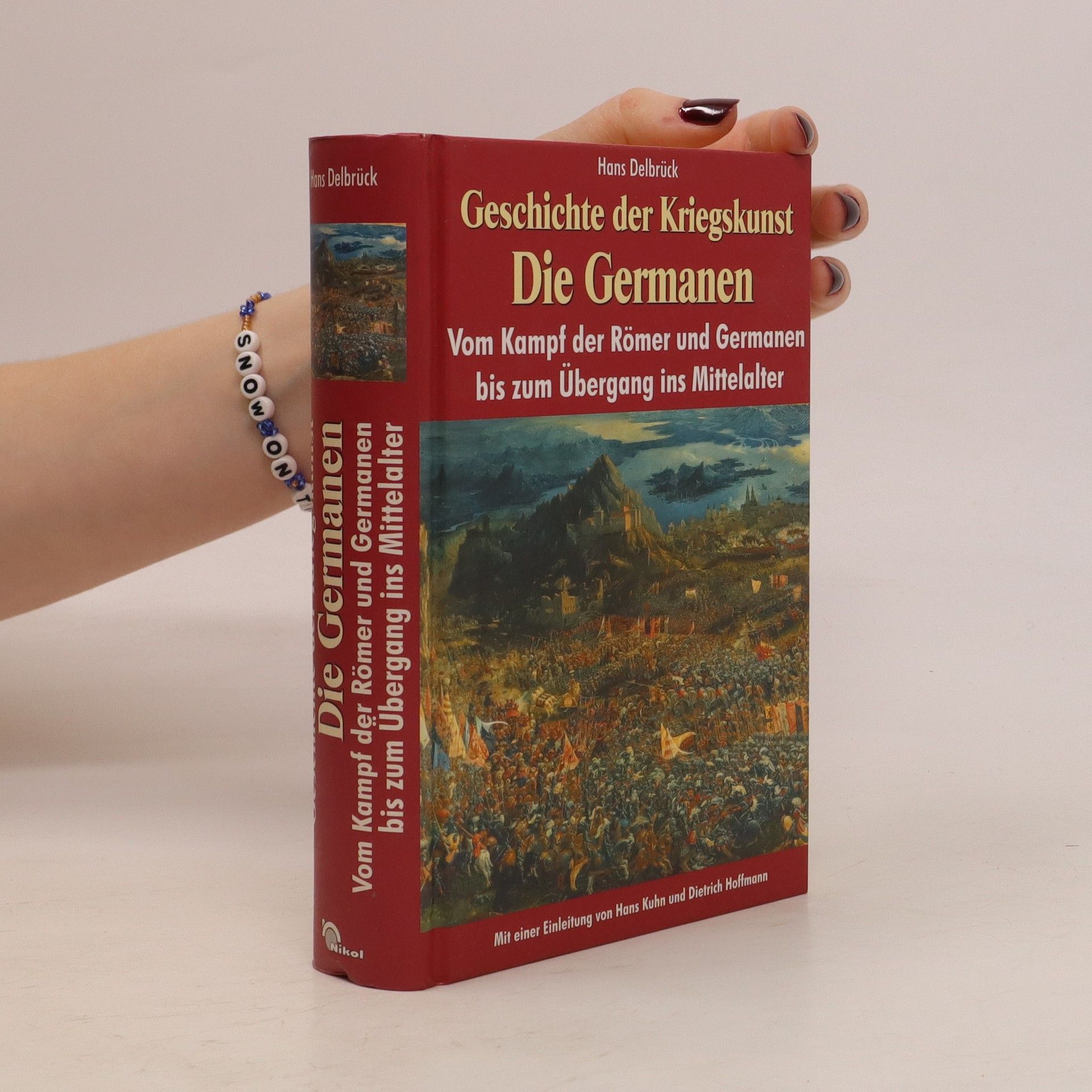Ein Hauptwerk der deutschen Geschichtsschreibung und zugleich die packende Darstellung der Militärgeschichte. Delbrücks 'Geschichte der Kriegskunst' ist das umfangreichste, gleichzeitig auch große, bahnbrechende Werk zur Geschichte und Organisation der Kriege. 'Ein Meisterwerk der Geschichtsschreibung. Delbrücks Werke gleichen den Steinen, die nicht aufhören, Funken zu sprühen, sobald man sie anschlägt.' Friedrich Meinecke (1929)
Hans Delbrück Livres
Cet historien allemand a examiné l'histoire militaire dans le contexte plus large de l'histoire mondiale. Son œuvre a cherché à relier les événements militaires aux principaux courants des affaires mondiales, en comprenant leurs interrelations. Il a exploré comment les conflits armés ont façonné le développement général de l'humanité et comment ils s'y sont reflétés. Ses analyses ont offert une compréhension plus profonde des processus historiques à travers une lentille militaire.
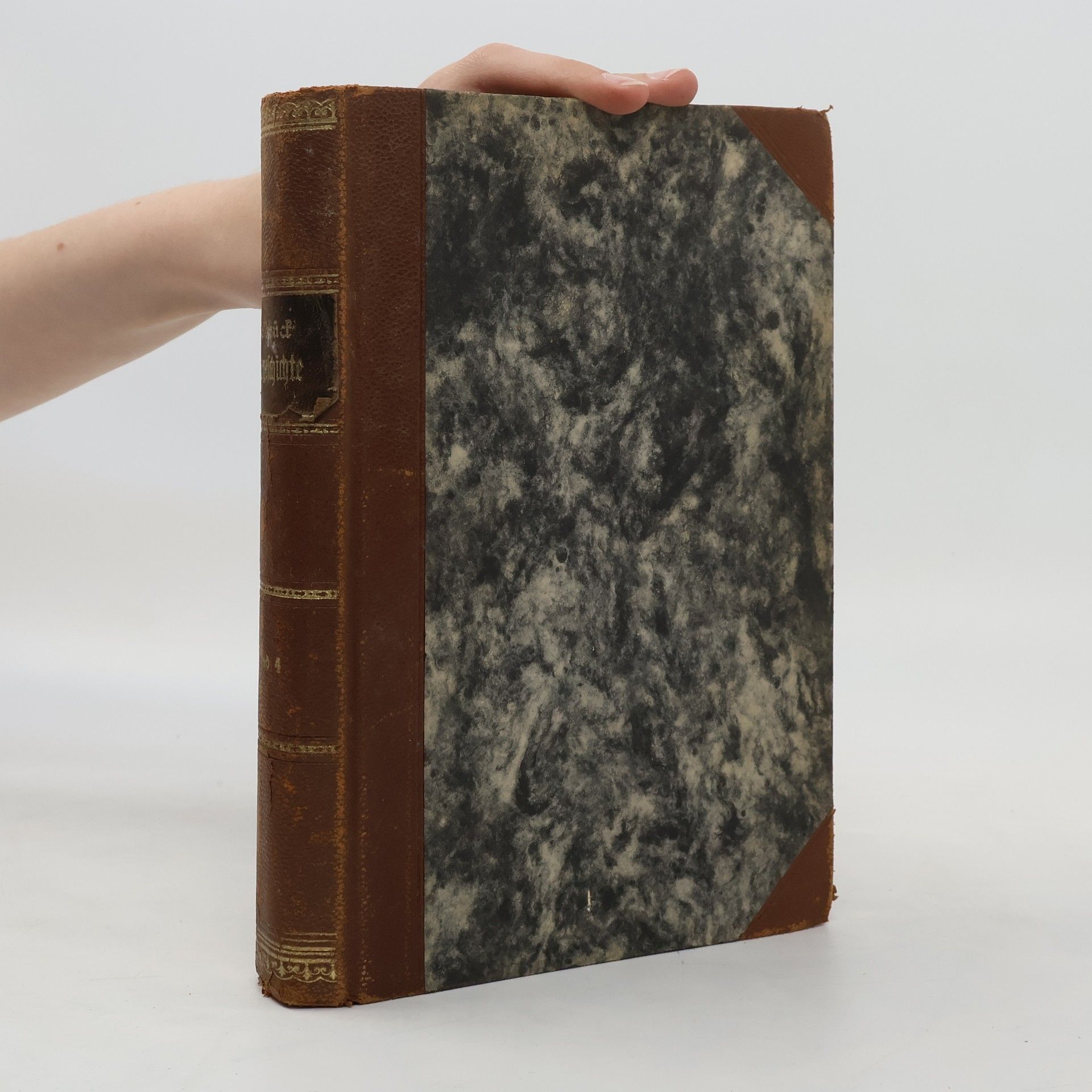

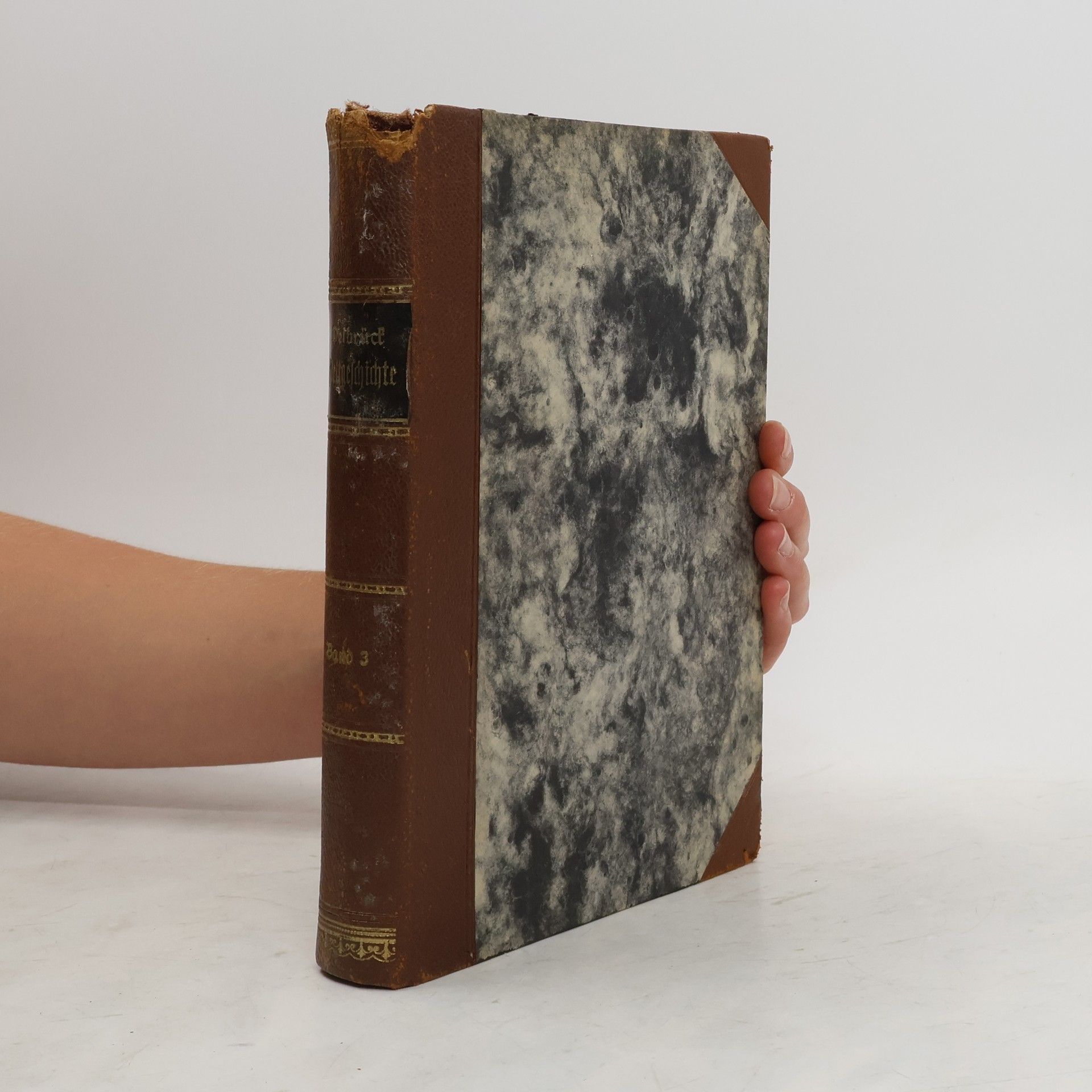
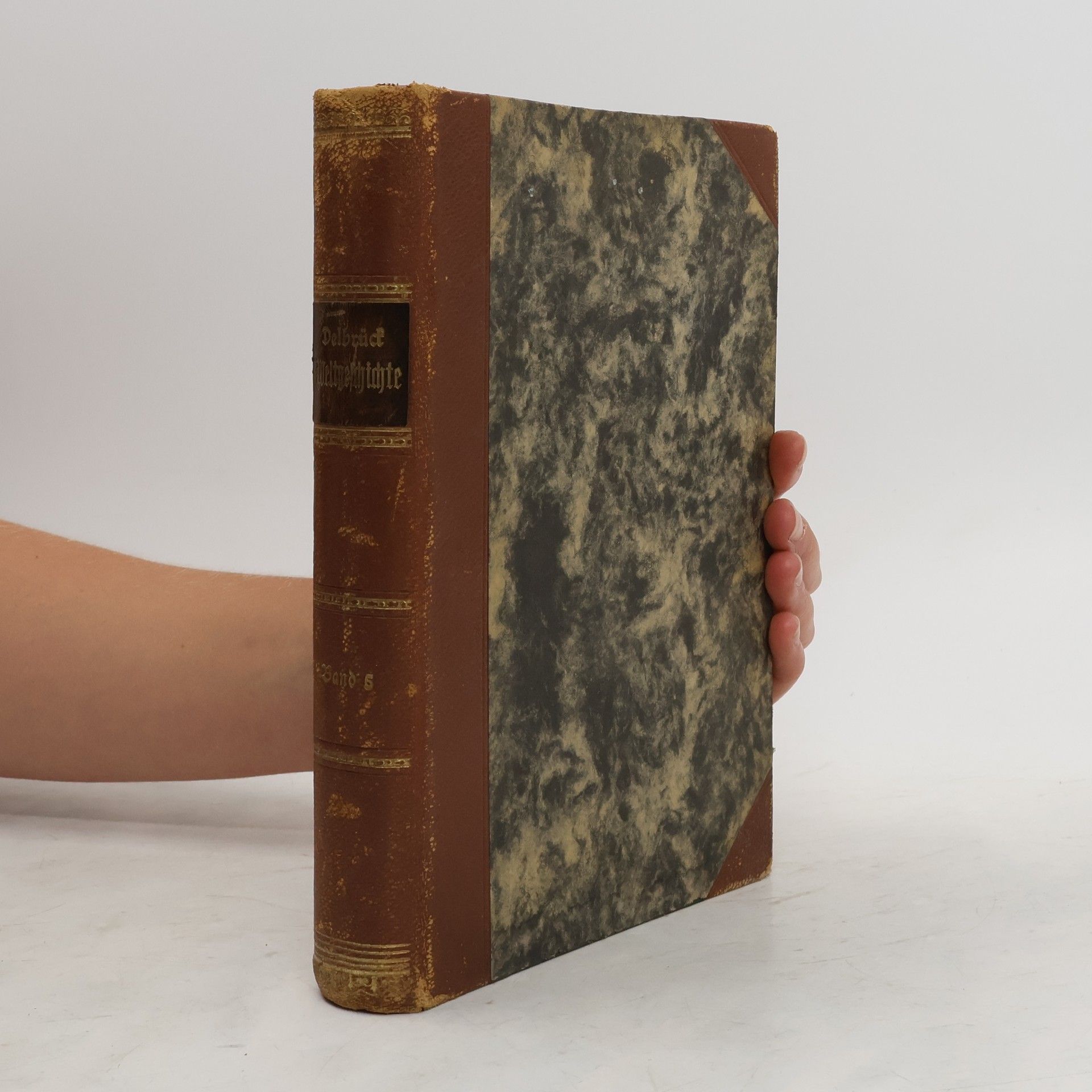
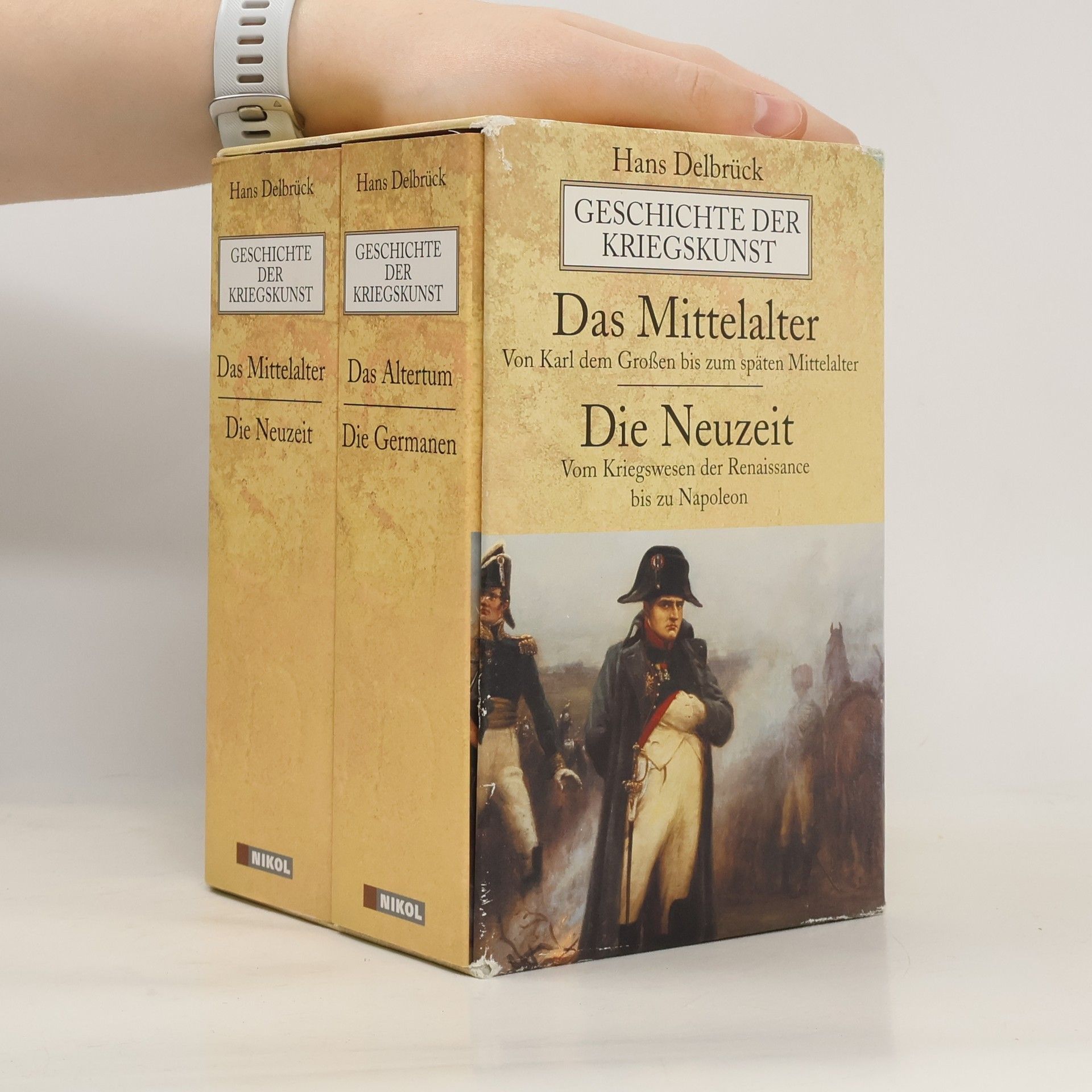

Delbrücks »Geschichte der Kriegskunst « ist das umfangreichste, gleichzeitig auch große, bahnbrechende Werk zur Geschichte und Organisation der Kriege. »Ein Meisterwerk der Geschichtsschreibung. Delbrücks Werke gleichen den Steinen, die nicht aufhören, Funken zu sprühen, sobald man sie anschlägt.« Friedrich Meinecke (1929)
Weltgeschichte. Band 1
Das Altertum
Weltgeschichte
Borlesungen, gehalten an der Universität Berlin 1896 /1920
4 Bände: Das Altertum Die Germanen Das Mittelalter Die Neuzeit Delbrücks „Geschichte der Kriegskunst“ ist das umfangreichste, gleichzeitig auch das große bahnbrechende Werk zur Geschichte und Organisation der Kriege. Ein epochemachendes Meisterwerk der Geschichtsschreibung!
